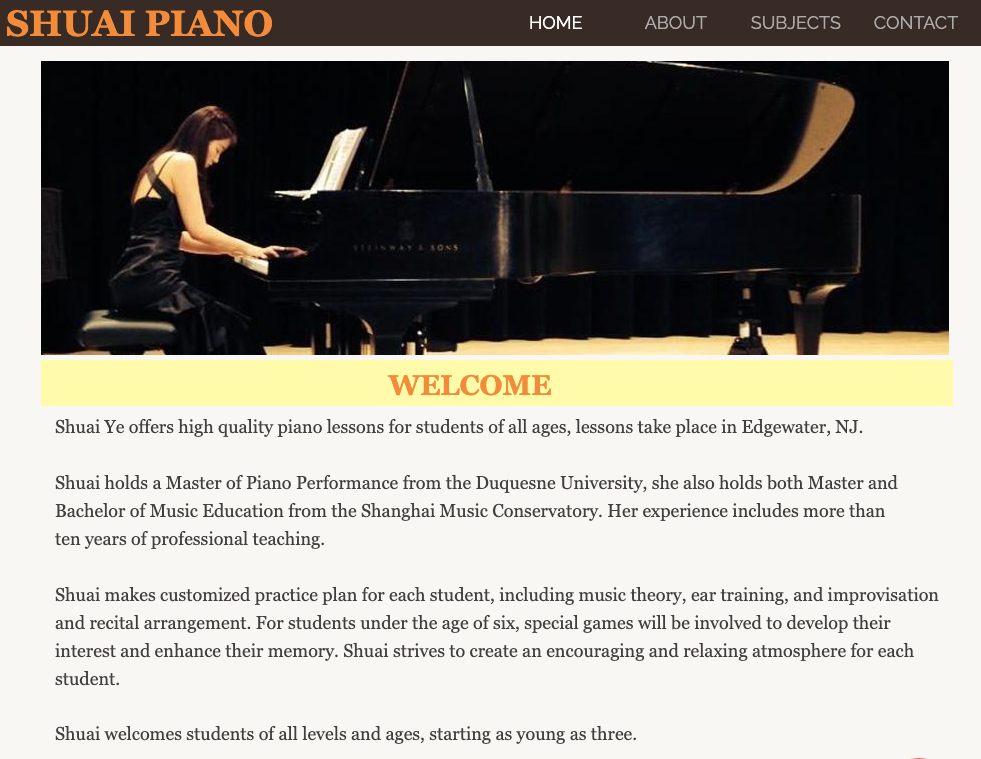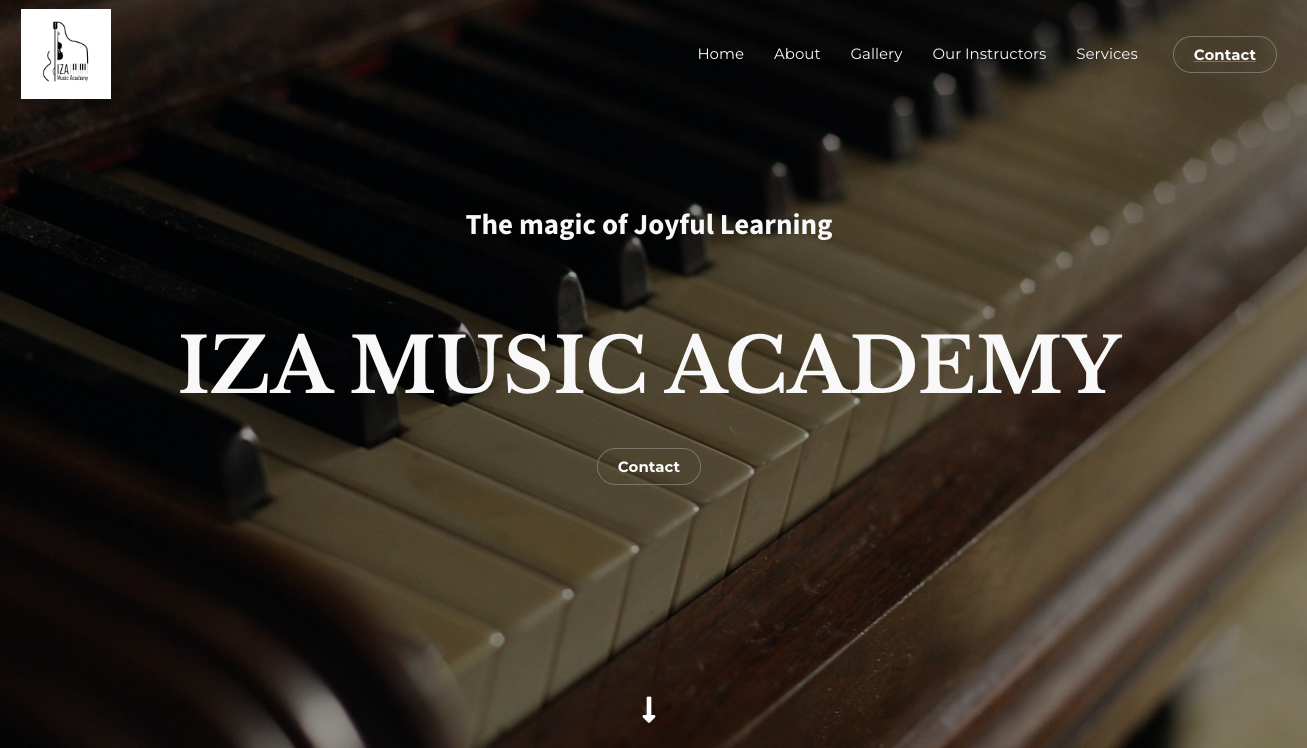The enchanting melodies produced by a piano have captivated hearts and souls for centuries. Whether you’re a complete beginner or an aspiring virtuoso, the journey of mastering this majestic instrument begins with finding the right piano lessons. If you reside in the vibrant region of West New York, New Jersey, you’re in luck! This article presents a comprehensive guide to the ten best piano lesson providers in the area, ensuring you embark on a musical adventure filled with growth, creativity, and harmonious success.
Piano lessons offer a gateway to a world of musical expression, providing individuals of all ages with an opportunity to learn the intricate art of playing the piano. In West New York, New Jersey, a diverse range of talented and passionate piano instructors have made their mark, dedicated to nurturing the talent within their students.
In this article, we have meticulously researched and handpicked ten exceptional piano lesson providers near West New York. Each of these instructors possesses the expertise, experience, and passion required to guide you on your musical voyage. Whether you prefer classical compositions, contemporary tunes, or jazz improvisation, you’ll find a piano instructor who perfectly aligns with your goals and aspirations.
From the tranquil shores of the Hudson River to the bustling streets of West New York, this guide aims to equip you with the knowledge to make an informed decision and embark on an unforgettable musical journey. So, without further ado, let’s delve into the ten best piano lessons near West New York, New Jersey, and unlock the keys to your musical dreams.
1. Shuai Piano

Website: http://www.shuaipiano.com/
Address: 453 Albany Ct, West New York, NJ 07093
Shuai Piano, located at 453 Albany Ct, West New York, NJ 07093, is a renowned piano lesson provider that stands out for its commitment to excellence and personalized instruction. With a mission to inspire and empower students, Shuai Piano offers a nurturing and supportive environment for aspiring pianists of all ages and skill levels.
Led by the accomplished pianist and instructor, Shuai Wang, the studio is dedicated to cultivating a deep appreciation for music while honing technical skills and artistic expression. Shuai Wang’s extensive experience as a performer and educator ensures that each student receives top-notch guidance tailored to their individual needs and aspirations.
At Shuai Piano, the curriculum encompasses a wide range of musical styles, including classical, contemporary, jazz, and more. Students are encouraged to explore their musical creativity and develop a solid foundation in technique, theory, sight-reading, and repertoire. With a comprehensive approach to piano education, Shuai Piano ensures that students not only master the instrument but also develop a lifelong love for music.
The website of Shuai Piano, http://www.shuaipiano.com/, serves as a valuable resource for prospective students, providing detailed information about the studio’s philosophy, faculty, lesson structure, and contact information.
2. Iza Music Academy

Website: http://izamusicacademy.com/
Address: 6502 Park Ave, West New York, NJ 07093
Iza Music Academy, situated at 6502 Park Ave, West New York, NJ 07093, is a reputable music institution that offers a wide range of piano lessons tailored to meet the needs of students at every stage of their musical journey. With a commitment to providing high-quality instruction in a supportive and engaging environment, Iza Music Academy has established itself as a premier destination for aspiring musicians in the West New York area.
Led by a team of highly skilled and passionate instructors, Iza Music Academy aims to foster a love for music while nurturing technical proficiency and artistic expression. The academy’s comprehensive curriculum covers various musical genres, including classical, jazz, pop, and more, allowing students to explore diverse musical styles and develop a well-rounded musical foundation.
Through personalized instruction, Iza Music Academy caters to the unique goals and learning styles of each student. Whether one seeks to pursue a professional career in music or simply wants to learn for personal enrichment, the academy’s experienced faculty guides students through a structured program that emphasizes technique, music theory, performance skills, and musical interpretation.
The website of Iza Music Academy, http://izamusicacademy.com/, serves as a valuable resource for prospective students, providing detailed information about the academy’s offerings, faculty profiles, lesson schedules, and contact details. With its commitment to musical excellence and a nurturing learning environment, Iza Music Academy invites individuals of all ages and skill levels to embark on a rewarding musical journey.
Tips for Learning How to Play Piano
The piano, with its captivating melodies and rich harmonies, has long been regarded as one of the most beautiful and versatile musical instruments. Whether you’re a beginner embarking on your musical journey or an experienced musician looking to enhance your skills, learning how to play the piano can be a fulfilling and rewarding endeavor. In this article, we will explore ten valuable tips to help you navigate the path to piano proficiency, from establishing a solid foundation to refining your technique and musicality. So, let’s dive in and unlock the keys to your piano success!
Set Clear Goals:
Before diving into piano lessons or self-study, it’s important to set clear goals. Determine what you want to achieve with the instrument—whether it’s playing your favorite songs, performing in public, or mastering a specific musical style. Setting goals will provide direction and motivation throughout your learning journey.
Find a Qualified Teacher:
Enlisting the guidance of a qualified piano teacher is invaluable, especially for beginners. A teacher can provide structured lessons, offer feedback, and address any technical or musical challenges you may encounter. Look for a teacher who aligns with your musical preferences and has experience working with students of your skill level.
Practice Regularly:
Consistent practice is key to making progress on the piano. Establish a practice routine that suits your schedule, aiming for regular, dedicated sessions. Practice doesn’t always have to be lengthy; even short, focused practice sessions can yield great results. Remember, quality practice is more important than quantity.
Master Proper Technique:
Developing proper piano technique is essential for playing with ease and preventing injuries. Focus on correct hand position, finger placement, posture, and relaxed movements. Regularly practice scales, arpeggios, and technical exercises to strengthen your fingers and improve dexterity.
Learn Music Theory:
While not everyone may find music theory fascinating, having a basic understanding of it can greatly enhance your piano playing. Learn about scales, chords, key signatures, and time signatures. This knowledge will help you decipher sheet music, play by ear, and improvise.
Embrace Sight-Reading:
Sight-reading, the ability to play music from sheet music without prior rehearsal, is a valuable skill for any pianist. Set aside time to practice sight-reading regularly. Start with simple pieces and gradually progress to more complex ones. This skill will broaden your repertoire and make learning new music easier.
Listen and Analyze:
Listening to professional pianists and recordings of piano music is a fantastic way to gain inspiration and expand your musical horizons. Pay attention to phrasing, dynamics, and interpretation. Analyze how the pianists bring out different voices and express emotions through their playing. This listening habit will inform and refine your own playing style.
Break Down Music into Sections:
When learning a new piece, break it down into smaller sections and work on each part separately. Focus on mastering one section at a time, gradually connecting them until you can play the entire piece fluently. This approach enhances muscle memory, making it easier to perform complex music.
Practice Slowly and Gradually Increase Tempo:
When learning a new piece, start by practicing it slowly and gradually increase the tempo as you become more comfortable. Slow practice allows you to pay attention to details, refine technique, and ensure accuracy. Once you’ve mastered the piece at a slower pace, gradually increase the speed while maintaining control and precision.
Enjoy the Journey:
Learning to play the piano is a journey that requires patience, dedication, and perseverance. Celebrate your achievements, no matter how small, and enjoy the process of learning and creating music.

